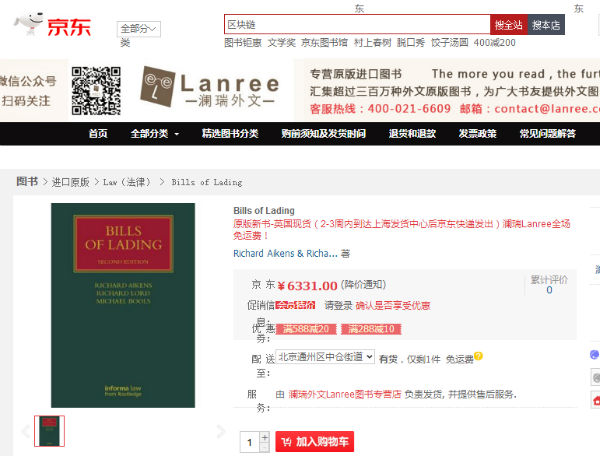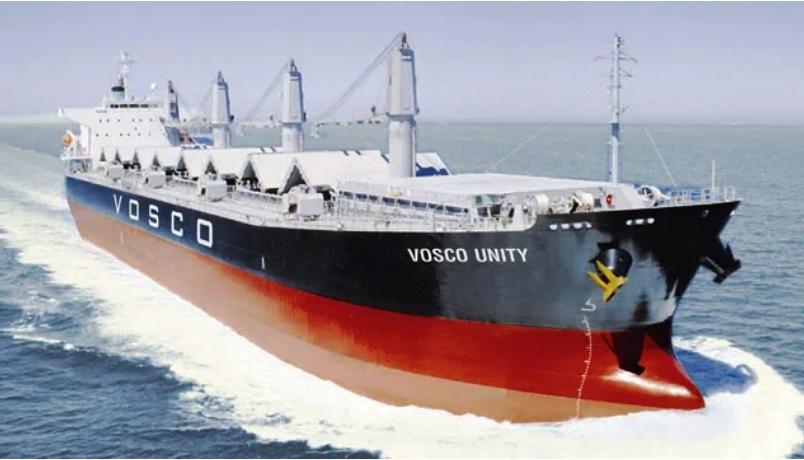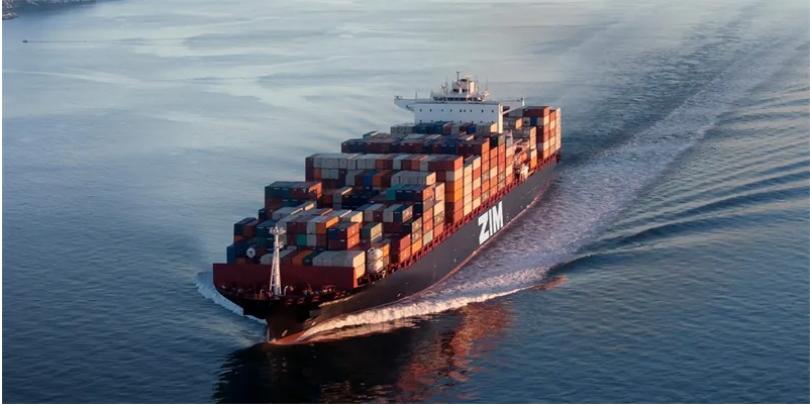Laytime Clauses 装卸时间条款
2.46 Weather working days is a term that appears to have come into use in the last decade of the nineteenth century. In those days delay in a fixed laytime charter usually fell on the charterer. Thus, in Thiis v. Byers, a charterer unsuccessfully tried to avoid liability for demurrage where there was a delay in discharge due to bad weather, by claiming that the master was not ready or able to deliver. The judgment of the court, consisting of Blackburn and Lush JJ, was given by Lush J, who said:
We took time to look into the authorities, and are of the opinion that, where a given number of days is allowed to the charterer for unloading, a contract is implied on his part that, from the time when the ship is at the usual place of discharge, he will take the risk of any ordinary vicissitudes which may occur to prevent him releasing the ship at the expiration of the lay-days.
and towards the end of his judgment, he added:
The obvious convenience of such a rule in preventing disputes about the state of the weather on particular days, or particular fractions of days, and the time thereby lost to the charterer in the course of discharge, makes it highly expedient that this construction should be adhered to, whatever may be the form of words used in the particular charterparty.
2.46 良好天气工作日是一个似乎是在十九世纪的最后十年间才始使用的术语。在那些日子里,在固定装卸时间的租船合同中,延迟通常都是由承租人承担的。因此,在Thiis v. Byers案,承租人曾经通过主张船长没有做好交货的准备或不能交货而设法对由于坏天气原因而在卸货中发生的延误的滞期费逃避责任,但是没有成功。当时是由Blackburn法官和Lush法官组成审判庭,Lush法官在作出的法院判词,他说:
我花了时间调查了一些判例,形成的意见是,当允许承租人使用给定的天数从事卸货作业时,对于他这一方来说,合同默示,即从船舶处于通常的卸货位置时起,他就承担可能会发生阻止他在装卸天数届满时放行船舶的任何日常变化的风险。
同时,在判词结尾处他又补充:
不论在具体的租船合同中所使用的措辞的形式可能如何,在避免关于具体日子中或部分日子中天气情况的争议方面,以及由此而在避免关于在卸货过程中对承租人损失的时间的争议方面,这种规则明显的便利是非常容易使它成为极其好用的方法,所以这种解释应予以坚持。
2.47 Despite this judicial disdain for such disputes, some twenty years later the first reported case concerning weather working days came before the courts. In argument, it was stated that there had not to date been any judicial interpretation of the expression ‘‘weather working day’’. Despite this invitation, Lord Russell of Killowen CJ, who heard the case, did not consider it necessary to fill this vacuum, in deciding the points then in issue. Indeed, 60 years later in Compania Naviera Azuero SA v. British Oil & Cake Mills Ltd and others, Pearson J was still able to say:
As there is no decisive authority . . . I must consider and decide the question as best I can, and the question is: What is the proper meaning of the expression ‘‘weather working days’’?
In Nelson & Sons Ltd v. Nelson Line (Liverpool) Ltd (No 3), Channell J said:
. . . the words used are ‘‘seven weather working days’’ which practically means seven fine days.
However, he then went on to suggest that it could be argued that seven weather working days might include a fine Sunday and that was why, in the particular case, a careful draftsman had expressly excepted Sundays and holidays. On the merits of such an argument, he made no comment and neither did the Court of Appeal and House of Lords when they in turn considered the case. However, Sunday is not normally a working day.
2.47尽管在司法上蔑视此类争议,但是大约二十年后,第一个被报道的关于良好天气工作日的案例摆到了法院的面前。在争论中提到:到目前为止还没有关于‘良好天气工作日’这一措辞的任何司法解释。尽管有这种要求,听审这个案子的Killowen(地名,位于北爱尔兰)首席大法官Russell勋爵并不认为有必要去填补这一空白,以对当时这些争论的问题做出判决。的确,60 年之后,在 Compania Naviera Azuero SA v. British Oil & Cake Mills Ltd and Others—案中,Pearson法官仍然能够说:
由于尚无明确的判例……我必须尽我所能来考虑和判定这一问题,而这个问题就是:‘良好天气工作日’这一措辞的恰当含义是什么?
在 Nelson Sons Ltd v. Nelson Line (Liverpool) Ltd (No 3)一案中,Channell法官曾说:
……所使用的措辞‘7个良好天气工作日’,实际上意思是指7个晴天日。
然而,他接下来却提出,7个良好天气工作日可能包括天气晴朗的星期日在内这一点可能是有争论的,而且,那就是为什么在这个具体案子中精细的起草人已经明确地将星期日和节假日除外的原因。对于这种争论的是非曲直,他未做任何评论。而后来当上诉法院和上议院依次审理此案时,他们也未对此做任何评论。但是不管怎样,星期日通常并非是工作日。

2.48 The question of whether a custom of the port could affect the meaning to be given to weather working days was considered in Bennetts & Co v. J & A Brown, a decision of Walton J. The facts were that a charter provided for discharge at ‘‘one or two good safe ports between Valparaiso and Pisagua’’ at a specified rate of discharge per weather working day. The charterers chose Valparaiso for discharge, which took place from an anchorage into lighters, which were then either discharged into other vessels or on to the beach. Evidence was given that, by a custom of the port, the port captain could declare days on which it was dangerous to discharge on to the beach as surf days, which were deemed not to be weather working days. On the days so declared, discharge into the lighters continued, but those lighters which were due to then discharge on to the beach were unable to do so.
2.48 关于港口习惯是否能够影响对良好天气工作日所赋予的含义这个问题,曾经在Bennetts & Co v. J &A Brown—案讨论过,当时是由Waltcm法官作的判决。该案的实际情况是,租船合同规定‘智利的Valparaiso和Pisagua之间的一或二个良好安全的港口’按照规定的每个良好天气工作日的卸货率卸货。承租人选定在Valparaiso卸货。卸货先在锚地往驳船上卸,然后再往其他船上或海滩上卸。当时曾经提出过一个这样的证据,根据该港的习惯,因为大/多浪日,港务局长可以宣布哪些天往海滩上卸货是危险的,这些天就不能被视为是良好天气工作日。在如此宣布了的日子里,往驳船上卸货仍在继续进行,但是那些本来应该接下来再往海滩上卸货的驳船却不能那样做。
2.49 Walton J held in these circumstances that, as a custom of the port of Valparaiso gave a meaning to the words ‘‘weather working days’’ different from their plain and natural one, it was not competent for the charterers to adopt it under the terms of the charter. They could, however, rely on an exception relating to detention by surf to cover such delay.
2.49 Walton法官判定,在这些情况下,因为Valparaiso港口的习惯给予‘良好天气工作日’这一措辞以不同于它的普通的和本来的含义,所以承租人不应该按照该租船合同的条款来采用它。但是,他们可以依据因多/大浪而延期的除外规定来弥补这种延误的损失。

2.50 In his judgment, Walton J said of the phrase ‘‘weather working days’’:
. . . I think it has a natural meaning—namely, a day on which the work, it may be of loading, but here it is of discharging, is not prevented by bad weather. Of course it might be a half a day. Half a day might not be a weather working day and the other half might be weather working, but I think that is the natural meaning of the words...
2.50关于‘良好天气工作日’这个短语,Walton法官在他的判词中说:
……我认为它具有一种本来的含义——那就是,指原本可以用于装货作业,而此时却用于卸货作业且不受坏天气阻碍的一天。当然它也可能是半天。一天的一半可能不是良好天气工作日,而另外半天却可能是良好天气工作日,我认为那才是这一措辞的本来含义……
2.51 However, on similar facts involving the port of Iquique, the Court of Appeal, in a ruling on a preliminary point of law, in British and Mexican Shipping Co v. Lockett Brothers, refused to allow a submission by the plaintiffs that a defence to a claim for demurrage based on a similar custom could not in law be a valid defence. In that case the charter provided for discharge at a specified rate per working day (not weather working day) and was specifically for discharge at Iquique. At first instance, Hamilton J had followed the earlier decision of Walton J and held that the custom could not provide a defence. It is submitted however that the decision of the Court of Appeal does not really go any further than saying that, if the parties to a charter wish to agree a special meaning to a type of laytime term, then there is nothing in law to prevent them from so doing. All three judges stressed that their ruling was only on a preliminary point of law with regard to the specific question they were asked.
2.51然而,在British and Mexican Shipping Co v. Lockett Brothers一案中,对于涉及智利Iquique港的类似的情况,上诉法院在对初步的法律观点进行判决时,则拒绝承认原告提出的论点,即基于类似的习惯对于索赔滞期费的抗辩请求,依据法律不能成为正当和有效的抗辩。在那个案子中,租船合同对每个工作日(而不是良好天气工作日)所规定的卸货效率,特别是对在Iquique港的卸货作了规定。在初审时,Hamilton法官曾遵循了Walton法官早期判决,于是他判定习惯不能支持抗辩。然而,人们却认为上诉法院的这一判决实际上只不过是说,如果租船合同的当事双方意欲同意赋予某种装卸时间的条款以某种特殊的含义,那么依照法律,没有任何事情能够阻止他们那样做。三位法官全都强调,他们的判决只是针对他们被问及的关系到初步法律观点的这一具体问题。
2.52 Another attempt to explain the meaning of weather working days was that of Lord Goddard CJ in Alvion Steamship Corporation Panama v. Galban Lobo Trading Co SA of Havana. Although this case can no longer be considered authoritative on the question of how long a working day is and how interruptions due to weather should be calculated, the following passage in Lord Goddard’s judgment remains valid:
There does not seem to be any doubt between the parties as to what the word ‘‘weather’’ means. It means that from the working day, whatever it may be, is to be deducted the time during which the men are stood off, or the loading is suspended, by reason of rain or other weather conditions. For example, there might be a hurricane, or something of that sort, to prevent work being done; but, at any rate, it simply means that the working day is to be reduced by the time in which working is suspended by reason of the weather . . .
2.52 另一个试图解释良好天气工作日含义的是首席大法官Goddard勋爵在Alvion Steamship Corporation Panama v. Galban Lobo Trading Co SA of Havana案中所作的判决。尽管这个案子不能再被认为是关于一个工作日是多长时间和应该怎样计算由于天气原因而发生中断等问题上的权威性的判例,但是,在Goddard勋爵判词中的下述部分片断仍然是有效力。他说:
就“天气”一词的含义而论,在当事双方之间似乎并无任何疑问。无论它可能是什么,它都是指从工作日中扣除由于下雨或者其他气象条件的原因而使装卸人员被迫离去或者使装货作业暂停期间的那段时间。例如,这可能会有飓风出观,或者某种类似情况的出现,而阻止作业的进行;但是,无论如何,它仅仅是意味着因天气的原因迫使装卸作业中断,工作日将被这段时间所扣减……
《装卸时间与滞期费》购买链接(点击可购买)

公益出版译著《Aikens on bills of lading》第二版中英文对照,筹款链接(可点击进入)
海运圈聚焦专栏作者 魏长庚船长(微信号CaptWei)

 2018-04-04
2018-04-04 6084
6084 












